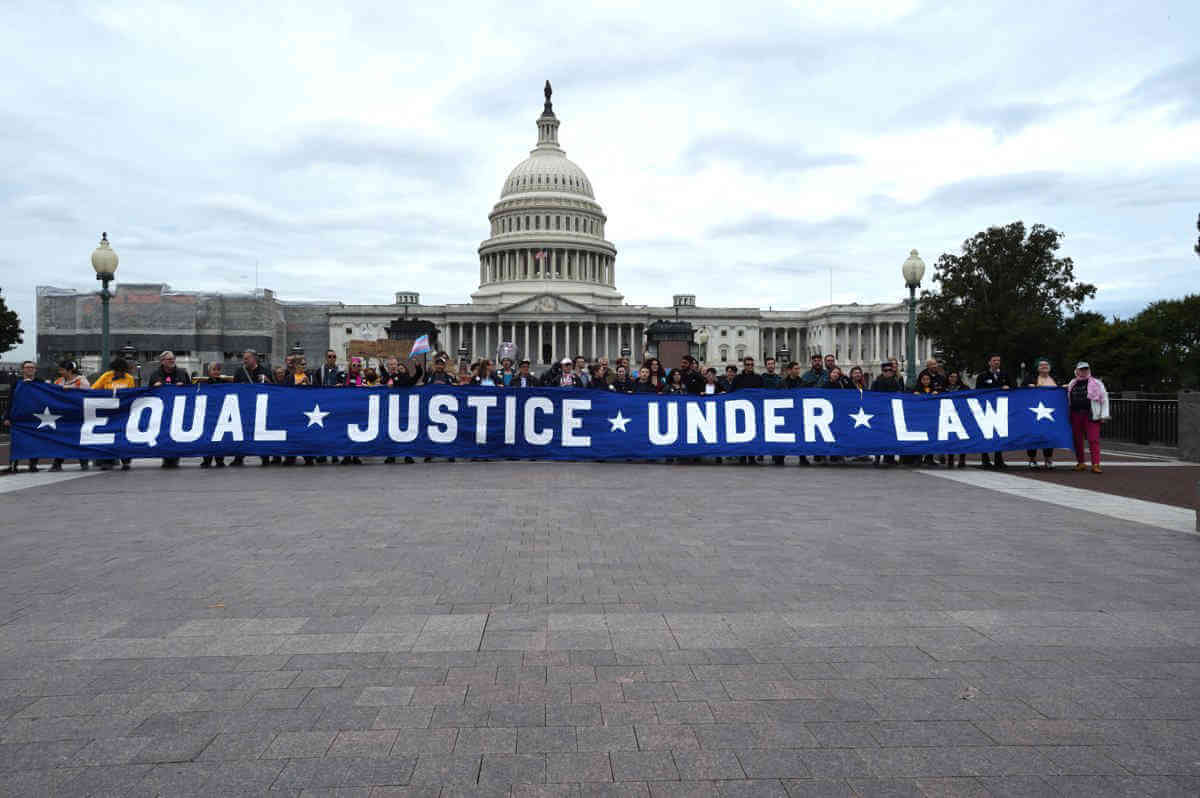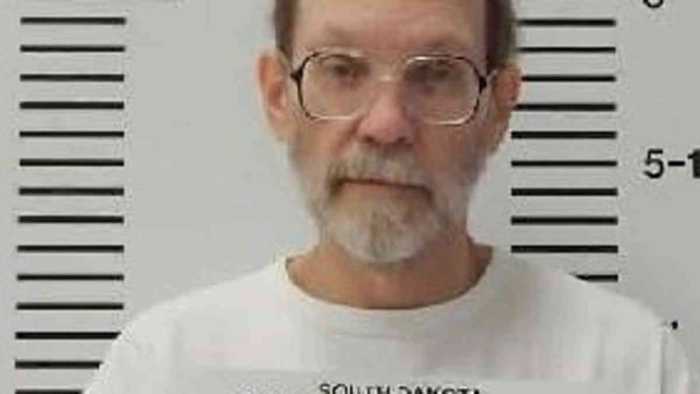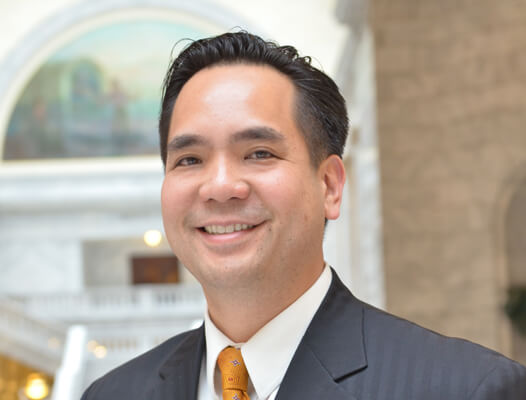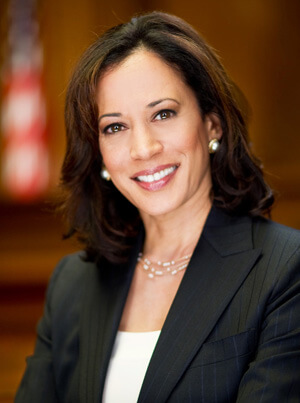Intense exchanges about the meaning of a 55-year-old civil rights statute in the context of the modern realities of homophobia and transphobia in the workplace, with plenty of bathroom hysteria sprinkled in, marked a dramatic morning of arguments at the Supreme Court of the United States on Tuesday.
The Supreme Court accepted the three cases argued this week for review this past April.

Two cases involving gay men fired by their employers, Bostock v. Clayton County, Georgia, and Altitude Express v. Zarda, were consolidated for an hour of argument over whether discrimination based on sexual orientation is prohibited by the provision in Title VII of the Civil Rights Act of 1964 that outlaws discrimination “because of sex.”
The second hour was devoted to R.G. & G.R. Harris Funeral Homes v. EEOC, involving a transgender Michigan woman, Aimee Stephens, invoking the same statutory language against her employer. She was dismissed from her job as a funeral director after she announced plans to transition.

Stephens and Gerald Bostock were in the courtroom for the arguments. Donald Zarda tragically died several years ago in a skydiving accident, but his sister and former partner have continued to pursue the litigation for him as co-executors of his estate. Zarda’s case has stretched for nearly a decade now.
Liberal Justices Ruth Bader Ginsburg, Stephen Breyer, Sonia Sotomayor, and Elena Kagan all indicated with their aggressive questioning that they are solidly prepared to rule in favor of the plaintiffs in the three cases, although Sotomayor surprised — and disappointed — many with her series of questions about bathrooms. Despite being treated twice this year for cancer, Ginsburg was back in top form, looking and sounding healthy as she easily dispatched the facts and outcomes of decades-old obscure gender discrimination cases.

Conservative stalwarts Chief Justice John Roberts and Justice Neil Gorsuch, meanwhile, left the impression that they actually might follow the textualist brick road to the Emerald City of an inclusive Title VII interpretation covering discrimination based on sexual orientation and gender identity.
In 2015 during the argument for Obergefell v. Hodges, the marriage equality case, Roberts himself memorably asked why it isn’t “a straightforward question of sexual discrimination” if “Sue loves Joe and Tom loves Joe,” but “Sue can marry him and Tom can’t.”

Pamela Karlan, a nationally-renowned academic and co-director of the Stanford Law School Supreme Court Litigation Clinic, argued on behalf of the two fired gay men in the first hour. Karlan, an out bisexual woman with a female partner, has a legendary LGBTQ rights pedigree at the Supreme Court; she clerked for the late Justice Harry Blackmun in 1986 and he later acknowledged her as the author of his dissent in Bowers v. Hardwick, when a bare majority of the court viciously upheld the constitutionality of a Georgia sodomy law. She also was on Edie Windsor’s legal team in 2013 in the case that ultimately brought down the federal Defense of Marriage Act.
Karlan was brimming with confidence and backed it up with plenty of legal firepower and wit. Early on in her allotted time, she even boldly insisted that the justices stay focused on the cases involving gay plaintiffs when they repeatedly creeped into questions about transgender people and bathrooms almost immediately during her time.

Her opposing counterpart, Jeffrey Harris, faced a hostile firing line, with even Justice Gorsuch pushing him to explain “in what linguistic formulation would one say that sex, biological gender, has nothing to do with what happened in this case?”
David Cole, the national legal director of the American Civil Liberties Union, handled argument on behalf of Aimee Stephens. Some prominent members of the transgender legal community have called into question why a transgender attorney could not have been given the opportunity to seize this groundbreaking moment at the Supreme Court lectern, but in any event, Cole was also strong, particularly during his uninterrupted closing rebuttal where he directly responded to the repeated suggestions that only Congress could explicitly add sexual orientation and gender identity to the statute. He declared that “interpreting a statute is not depriving the democratic process; it is doing what the court is supposed to do within the democratic process.”

The arguments also laid bare the desperate scare tactics of the so-called Alliance Defending Freedom in these cases; a parade of horribles about the implications of a victory in the transgender context was the main dish ADF lawyer John Bursch was serving again and again, including the probable canceling of all athletic competitions and the purportedly terrifying thought of a transgender counselor working at a shelter for women fleeing domestic violence. Cole powerfully reminded Justice Gorsuch that many transgender people at the Supreme Court for the arguments were using the bathrooms in the building without causing a “massive social upheaval,” in Gorsuch’s words.
Meanwhile, Solicitor General Noel Francisco was given time in both hours to offer the Trump administration’s laughable-if-it-weren’t-so-dangerous position that firing gay and transgender people should be legal as long as men and women are both equally fired for being gay or transgender. During his second time at the lectern, Justice Breyer memorably interrupted him to describe the history of civil rights and poignantly characterize the LGBTQ community as “people who were suffering terrible discrimination.”

Looking up at the bench, the arguments could not help but bring home the dire reality of the retirement of longtime gay rights ally Justice Anthony Kennedy in 2018. His exit allowed President Donald Trump and Senate Majority Leader Mitch McConnell to cement a devastating five-to-four conservative majority on the court with the bitter nomination and confirmation of Justice Brett Kavanaugh last year. Kavanaugh spoke only once, mysteriously asking whether there is a distinction between the literal and plain meanings of “because of sex.”
Justice Clarence Thomas missed the arguments for Monday’s cases entirely, amidst reports he was suffering from a bout of the flu. He returned to the bench for the Title VII cases on Tuesday, although he, as usual, did not ask any questions.

Aside from the many LGBTQ legal luminaries in attendance, famous actresses and LGBTQ advocates Laverne Cox and Sara Ramírez also brought some serious star power to the courtroom and the post-argument press conferences outside.
Decisions will be released by the Court by the end of June 2020, but given how early these cases have been argued in the term, they could also potentially come earlier in the winter or spring.
Matthew Skinner is the executive director of The Richard C. Failla LGBTQ Commission of the New York Courts.



































